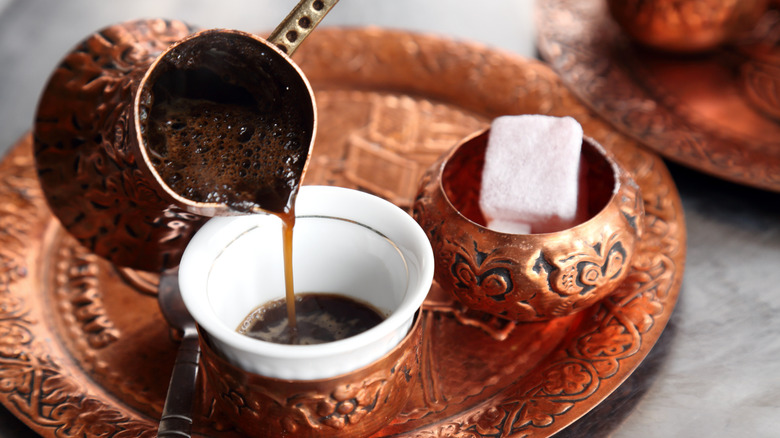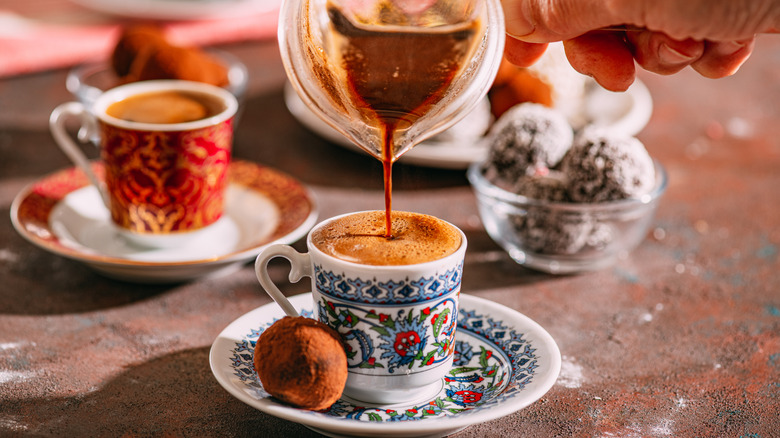The Major Flavor Difference Between Turkish Coffee And Other Brews
If you're looking to sip on a typical drip coffee, then Turkish coffee might not be for you. It offers a completely different experience, with a deep history and unique brewing method. The bold taste comes from several factors, mainly the very fine grind and the unfiltered brewing. Instead of filtering out the coffee grounds like with regular coffee or espresso, Turkish coffee keeps the grounds in; leading to a thicker brew with a stronger body and feel. This makes it more bitter, with an earthy, chocolatey aftertaste.
The kind of coffee beans used also affects the flavor. Usually, Arabica beans are preferred for their smooth taste and balanced acidity, but some Turkish coffee blends use Robusta beans for a stronger cup. Medium roasts are often used to balance the natural sweetness and acidity.
This type of coffee isn't brewed in a typical coffee pot. It's made in a cezve, a small copper pot that evenly heats its contents. After it's brewed, it's poured into a finjan, a small, decorated coffee cup. Turkish coffee is often sweetened with sugar, which adds another layer to the flavor. The amount of sugar is changed to suit individual taste, ranging from what the Turkish call "sade" (no sugar) to "sekerli" (extra sweet). Some variations include spices like cardamom or cinnamon for added aroma.
Compared to regular coffee, Turkish coffee is quite strong. Espresso, though strong and concentrated, is not the same (regardless of whether it's ristretto or lungo). Unlike cold brew, which is brewed hot and chilled, Turkish coffee is brewed and served unfiltered. Perhaps French press is the closest, but its use of a filter differentiates it.
The start of Turkish coffee and its lasting effects
The story of Turkish coffee begins in the 16th century, when the Ottoman Governor of Yemen discovered a caffeinated beverage in his region and introduced coffee to Sultan Suleiman. The Sultan was immediately drawn to the drink and it quickly became popular in the Ottoman court. From there, coffee makers were trained, known as Kahveci Usta, and were tasked with preparing the beverage for the Sultan and his people. Coffee houses, or kahvehane, soon started appearing, becoming centers for socializing, sharing news, and drinking Turkish coffee.
Turkish coffee has deep cultural meaning in Turkey, representing hospitality, friendship, and refinement. Giving a cup of Turkish coffee to a guest is a sign of welcome and respect, and sharing coffee is thought to build strong relationships. Traditionally, Turkish coffee played a big part in marriage customs, where a potential bride would make coffee for the groom's family to show off her skill. Turkish coffee is still a key part of engagement ceremonies and holidays, with its knowledge and rituals passed down through generations.


